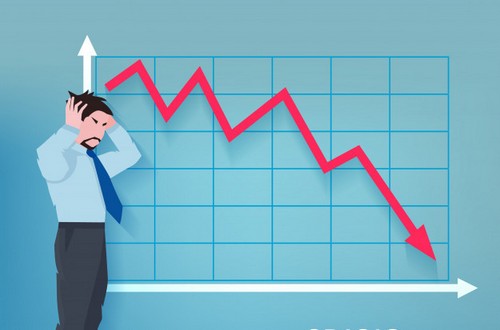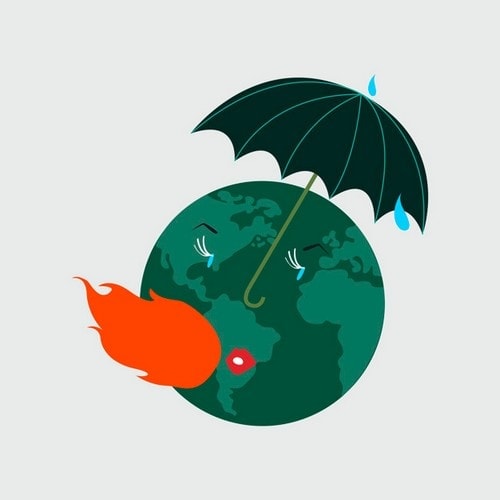
8 Types of Crisis You Need to Know

Organizational crises are sudden and unforeseen events that cause restlessness among individuals in an organization These crises can be classified into 8 different types including technological, financial, natural, malice, deception, confrontation, misdeeds, and workplace violence
An organizational crisis refers to a sudden and unanticipated event that ignites a sense of restlessness among members of an organization. It can be any occurrence that creates an uncertain and hazardous situation, impacting a community, a group of people, or even society as a whole. Typically, a crisis arises without warning and instills feelings of fear and threat, catalyzing a series of unexpected events. When a crisis occurs, time is of the essence, and quick, effective decision-making is critical.
Additionally, crises are characterized by elements of surprise, making it impossible to predict the outcome of any given action. They destabilize the work environment and exacerbate the situation. It's worth noting that crises aren't exclusive to organizations – they are a part of everyone's life. For instance, a personal crisis could arise when a student has only $10,000 in their bank account but needs to pay $50,000 in college fees by the next day, with nobody willing to help cover the shortfall.
Crisis situations have become increasingly common due to the widespread use of communication tools and the internet. A proactive approach to crisis management involves preparing for potential crises before they occur. By taking preventative measures, negative consequences can be minimized or avoided altogether. Crisis management refers to the process or system that is used to address unexpected and threatening situations. This article will explore various types of crises and provide effective strategies for managing them. Let's begin with an overview of different crisis types.
1) Technological crisis :
In today's modern business landscape, technology plays a crucial role in ensuring smooth operations. Any malfunction or breakdown in technological equipment can lead to disruptions in customer service. For instance, consider a coffee shop that relies heavily on its coffee machine. If the machine breaks down, it can significantly slow down business operations and leave customers dissatisfied.
A well-known example can help us understand this crisis better. Imagine waking up one day to find that all your beautiful "no-filter" photographs on Instagram have been deleted due to a server compromise. This would be considered a technological crisis, which typically involves hardware failure, software compromise, or industrial accidents. In such situations, management should focus on mitigating the losses and developing a plan to return to normalcy as quickly as possible.
2) Financial crisis :
An organization can be faced with a financial crisis when it experiences a sudden loss of a significant amount of money. This can be caused by various financial issues such as bankruptcy, revenue losses, inflation, or a sudden change in the market trend. The impact of a financial crisis can be severe and damaging to the entire organization. Failing to handle the situation carefully and promptly can result in a loss of trust from customers, which can be difficult to regain.
3) Natural crisis :
Failing to handle crisis situations can seriously damage an organization's reputation and even lead to permanent closure. To prevent this, companies should set aside funds specifically for crisis management and make important decisions such as adapting to market changes, securing necessary funding, and upgrading operations. These measures can help ensure the long-term success and stability of the business.
3) Natural crisis :
Natural crisis takes place because of the occurrence of natural phenomena such as earthquake, volcano, floods, storms or any other act of nature.
Damages caused by natural disasters are often beyond human control and are classified as natural crises. These crises can occur on a large scale, making it essential to plan for them in advance. One approach is to construct earthquake-resistant buildings, install emergency exit doors, and provide training to employees on how to behave during such circumstances. This proactive approach can help mitigate the impacts of natural disasters and minimize their destructive effects.
4) A crisis of malice :
Competitive business environments naturally attract adversaries, and companies often employ tactics to outperform one another and secure more business. Healthy competition can foster growth and development. Unfortunately, some competitors overstep the boundaries of fair play and resort to malicious tactics designed to tarnish the reputation of their opponents. These tactics may include hacking into a company's website and spreading false information, tampering with products or software, or spreading damaging rumors. When faced with such crises, it takes a high level of expertise to successfully navigate and clear up the situation.
5) A crisis of deception :
Maintaining confidentiality within a large organization can be a daunting task. The repercussions of deceitful behavior can greatly harm the organization when an individual within the organization intentionally misrepresents information. To mitigate the damage caused by such situations, it is crucial to consult with legal experts and take appropriate measures.
6) Confrontation crisis :
During a confrontation crisis, a group of people or an individual will demand certain expectations from an organization, institute, or government. They may use tactics such as boycotts, strikes, blockades, workplace occupations, picketing, giving ultimatums, or even property destruction to achieve their goals. There is no one-size-fits-all solution to handle these situations, but involving law enforcement and legal authorities may aid in managing a confrontation crisis.
7) A crisis of organizational misdeeds :
Organizational misdeeds crisis occurs when management makes decisions without considering the impact on employees and stakeholders. Such crises can result in legal battles and cause severe financial and reputational harm to the organization. These crises can be classified into three categories, including:
14) The aftermath of a crisis: Once a crisis has occurred, the organization must take swift and effective action to address the issue and mitigate the damage done to its reputation. This may involve implementing new policies and procedures, conducting investigations, and providing transparent communication to stakeholders. Failure to properly handle a crisis can result in long-term consequences for the organization.
3) A crisis of management misconduct: these types of crisis happen when management takes immoral and illegal actions.













